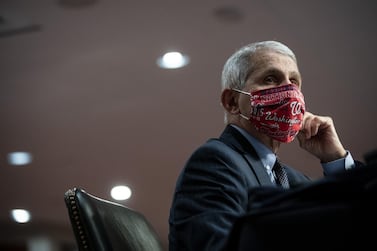British Prime Minister Boris Johnson spoke with UN Secretary General Antonio Guterres and Tedros Adhanom Ghebreyesus, Director General of the World Health Organisation, on Tuesday evening.
“In both calls, the prime minister set out the UK’s support for the international effort to defeat coronavirus and for the work of the UN and WHO in helping to co-ordinate the global response,” a Downing Street spokesman said.
“The Prime Minister and Dr Tedros agreed on the importance of an independent investigation into the origins of the coronavirus outbreak, so we can learn lessons to prevent future pandemics.
Mr Johnson confirmed to Mr Guterres that he would take part in the UN’s video conference, Financing for Development in the Era of Covid-19, on Thursday.
And the leaders of the two world bodies repeated their support for the Global Vaccine Summit to be hosted by Britain on June 4.
The summit "will raise vital funds to save the lives of millions of children worldwide", Downing Street said.
The virtual summit seeks to raise at least $7.4 billion (Dh27.18bn) to support research into vaccines to reduce disease inequality.
The event will help the Global Vaccine Alliance to secure support to immunise 300 million children and save up to 8 million lives by 2025.
It will also strengthen health systems around the world and help to tackle coronavirus in some of the world’s poorest countries.
The summit will bring together private and public sector global leaders, who will try to build long-term sustainability and vaccine supply security.
Mr Johnson has called on countries to come together in a “truly global effort” to defeat Covid-19.
Last week, Gavi, the WHO and Unicef warned that about 80 million children were at risk as the coronavirus pandemic disrupted progress to provide vaccines for other diseases.
The three organisations said the Covid-19 pandemic would disrupt work on life-saving immunisation programmes around the world for diseases including diphtheria, measles and polio.







